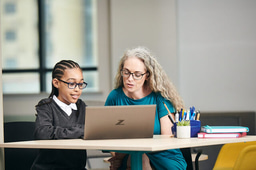Discovering ‘what works’

It is undeniable that every corner of education has been affected by the global pandemic. Equally, it could be argued that the pandemic has exposed the existing crisis in special educational needs and disabilities, thereby amplifying existing challenges. A recent survey conducted by Bath Spa University and special needs charity nasen explored the experience of SENCOs during the pandemic. The survey focused on the first lockdown and the initial wider opening of educational settings in September 2020.
The survey demonstrated that a key challenge for SENCOs was how to ensure provision for children with special educational needs (SEN) during this period, both in school and remotely. Additionally, the survey found that SENCOs found it hard to support staff during this period, particularly with differentiation. Further issues included accessing support from external agencies.
However, SENCOs reported that their interactions with families had increased and as a result they felt relationships had improved, reporting that they had a better understanding of the needs of the children and their families.
Lesson learnt
The survey report made a number of recommendations, with a call for schools to maintain the increased focus on families, due to the benefits that this brings, as well as recognising that staff need support and guidance when ensuring provision for children with SEN.
However, further research previously conducted by nasen about early years SENCOs identified that those working in this phase were already demonstrating effective practice in these areas. So what lessons can we learn from early years SENCOs with regards to how we address these areas?
A key part of the early years SENCO role is to develop trusting and effective relationships with families. The early years setting is often the parents' first experience of an educational setting for their child and so sensitivity in this area is key. Early years SENCOs are experienced in how to develop and sustain relationships with parents, as well as how to have those early conversations if a concern has been voiced by either the parent or setting. They also view the family relationship as an intrinsic part of developing a whole child understanding and have a myriad of ways of doing this.
Sharing such knowledge with colleagues from other phases has the power to develop and build on the relationships which have begun in the early years, thus illustrating the potential power of cross phase SENCO networks.
A flexible approach
The SENCO survey also illustrated that a challenge throughout the pandemic has been how to support children with SEND and how to support teachers too. It could be argued that early years' settings have scope for greater flexibility than later phases. However, there is much to be learned from this flexible approach.
The role of the key worker, and their relationship with the SENCO, is key to ensuring flexible, appropriate provision for children. Early years SENCOs view communication as central to identifying and making provision for SEND.
Through regular communication, and through taking an evidence-based approach, early years SENCOs are not only ensuring appropriate provision for children with SEND, but upskilling colleagues at the same time.
This highlights not only the importance of communication, but also the time to communicate. A central premise of the SENCO survey has been to examine the working practices of SENCOs and to determine what works. We know that all SENCOs need more time, and the SENCO survey has illustrated the potential positive impact that this can have.
Overall, while the current Covid-19 crisis has amplified many of the issues settings were experiencing, we can look within the sector for solutions on how best to mitigate the current, and likely future, challenges. Cross phase networking and support is going to be an essential element.
With talk of ‘catch up’, the ‘recovery curriculum’ as well as concerns regarding increased and newly identified needs, it is undeniable that early years SENCOs have much to offer their colleagues with how to approach and address these challenges.
Useful resources
By Dr Helen Curran, Bath Spa University





Please sign in or register for FREE
If you are a registered user on SEND Network, please sign in